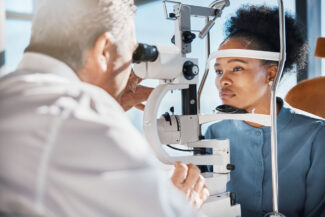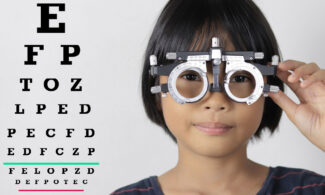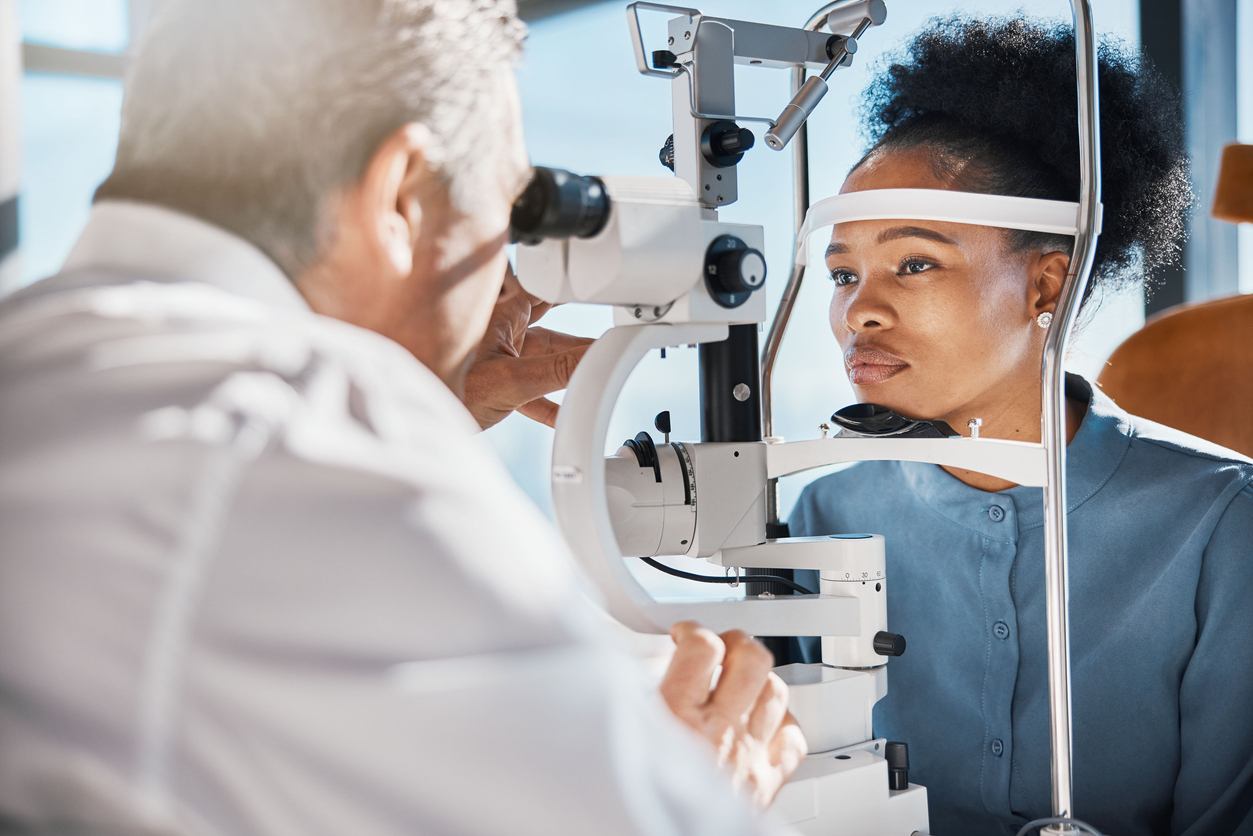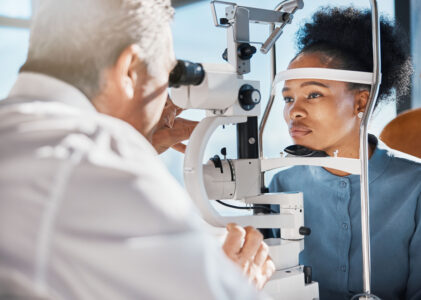 Children and adults of all ages should have an annual eye exam to identify any underlying conditions they may not be aware of. Some diseases have no early symptoms and can develop later in life without any warning but could be detected in an eye exam. Include an eye exam with your annual medical checkups to detect and prevent eye disease and damage.
Children and adults of all ages should have an annual eye exam to identify any underlying conditions they may not be aware of. Some diseases have no early symptoms and can develop later in life without any warning but could be detected in an eye exam. Include an eye exam with your annual medical checkups to detect and prevent eye disease and damage.
Early diagnosis is important to help prevent long-lasting eye damage with the proper treatments. Ophthalmic MRI is often used to help diagnose and treat many types of eye conditions and diseases. Preventing many forms of eye disease is possible by following some precautionary measures. There are many things that you can do to help keep your eyes healthy and maintain the best possible vision.
Follow these tips to maintain healthy eyesight now and in the future:

See an eye doctor for a thorough eye exam – even if you think your vision is perfect and your eyes are healthy, it is important to visit your eye care professional regularly for a dilated eye exam. Some people may not be aware of slight changes in vision or may have no symptoms of some common eye diseases, such as diabetic eye disease, glaucoma, and macular degeneration, which can occur with no warning signs. The only way to diagnose these conditions early to receive the best possible treatment is with a dilated eye exam.
- Eat a healthy diet – while it’s true that carrots are beneficial to maintain healthy eyes, a diet rich in fruits and vegetables, especially dark leafy greens such as kale, collard greens, and spinach, is a great way to naturally ward off eye disease. Studies also show that eating fish high in omega-3 fatty acids, such as tuna, salmon, and halibut, is also beneficial in promoting healthy eyesight. We should all eat a healthy diet for overall wellness, but getting the proper amount of dark leafy greens and omega-3 fatty acids benefits your entire body, including your eyes.
- Know your family health history including eye health – many eye conditions can be hereditary, it is therefore important to know the eye health of family members. You should be aware of any diagnosis of eye disease and conditions that would put you at a higher risk for developing those conditions.
 Maintain a healthy weight – carrying around extra weight or being obese increases the risk of developing systemic conditions, which can lead to eye diseases such as glaucoma or diabetic eye disease. Talk to your healthcare provider if you need help maintaining a healthy weight.
Maintain a healthy weight – carrying around extra weight or being obese increases the risk of developing systemic conditions, which can lead to eye diseases such as glaucoma or diabetic eye disease. Talk to your healthcare provider if you need help maintaining a healthy weight.- Don’t smoke – quitting smoking or never starting will protect your eyes along with the rest of your body. Studies show that smoking increases the risk of developing age-related eye diseases such as optic nerve damage, macular degeneration, and cataracts, which may lead to blindness.
- Wash your hands before handling contact lenses – you should always wash your hands thoroughly before taking out or putting in your contact lenses to avoid infection.
- Wear sunglasses with UV protection – Ultraviolet radiation from the sun can damage the eyes, be sure to purchase sunglasses that block both UVA and UVB radiation.
- Reduce eye strain on electronics – when typing or looking at a screen for extended periods, your eyes can experience eye strain, which can affect your eye health and vision. Make an effort to look away from your screen at least 20 feet in front of you every 20 minutes to avoid eye strain. Remember the 20/20 rule.
- Wear safety eyewear – wearing protective eyewear during certain activities, such as sports or dangerous work areas, will help to protect your eyes from serious damage. You can obtain the correct type of protective eyewear for your activity, which may include safety glasses, goggles, eye guards, or safety shields from some sporting goods stores or your eye care provider.
They say that our eyes are the windows to the world. Help to maintain healthy eyes for better health and eyesight for yourself and your children. Follow these simple eye safety tips, and be sure to include the eye doctor in your annual checkups. Learn more from the National Eye Institute and watch a video about how a comprehensive dilated eye exam can prevent blindness.
GWIC cares about your overall health and well-being, including the health of your eyes. We encourage you to follow these eye protection tips and to speak with your doctor about any concerns with family history or symptoms of poor vision. Contact us for all your MR imaging needs, including Ophthalmic MRI.


